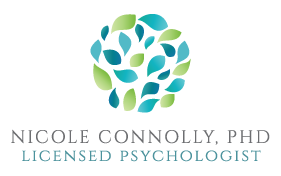Depression Awareness Month
Here in the US, the month of October has been designated as Depression Awareness Month. Although the month is quickly drawing to a close, ongoing attention to this significant mental health challenge is important.
While everyone feels down at some times, clinical depression is a serious condition affecting an estimated 15-20% of the population at some point during their lifetime. About 11% of adolescents have experienced a major depressive episode by age 18, according to the National Institute of Mental Health.
Know The Signs
While most of us understand what it is like to feel sad and down, clinical depression involves feeling several of these symptoms for most of the day, nearly every day for at least 2 consecutive weeks:
Feeling down, depressed, or blue much of the time
Having trouble enjoying the things you usually like to do
Feeling worthless or hopeless
Feeling slowed down & lacking energy
Feeling restless and unable to settle down
Difficulty concentrating
Difficulty making decisions
Sleep problems - either sleeping too much or not able to sleep enough
Appetite problems - either feeling more hungry than usual or feeling less hungry than usual
Significant weight changes over a relatively short span of time
Withdrawing from friends and loved ones
Thoughts about death or dying
Because children and teens are at different points of cognitive development from adults, their depression may be expressed in different ways. While they may experience many of the same symptoms that depressed adults experience, their symptoms may also be more subtle. Additional signs to watch for in kids include:
Persistent irritability
Frequent somatic complaints, like headaches and stomachaches that do not seem to have a medical cause.
Outbursts and frequent crying
Worsening performance in school
Difficulties with peers
What To Do
If you suspect that you or a loved one may be experiencing clinical depression, consulting with your doctor or a trained therapist as soon as possible is important. While many people with depression find that their symptoms may gradually decrease over time, getting treatment right away can help improve the situation sooner and provide much-needed relief.
Both therapy and medication have been found to be effective in treating the symptoms of depression. In fact, treatment studies suggest that either therapy alone or therapy combined with medication are both more effective in the long run than just taking medication by itself. The best treatment for depression involves both medications (if you are comfortable with taking medications) and therapy.
Several different types of therapy have been shown in the research to be effective for treating depression. Both cognitive behavioral therapy and interpersonal therapy have had strong support. Newer behavioral therapies, such as mindfulness-based cognitive-behavioral therapy, dialectical behavior therapy and acceptance and commitment therapy are also showing promising results.
Resources
For more information on depression, visit:
What is Depression? - National Institute of Mental Health
